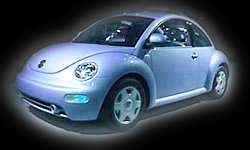 |

OR

CASH!!!

Click To Enter giveaway Paradis - freebie Lotteries!
- Messages sorted by: [ game ][ cards ][ giveaway ][ decks ]
- Next message: Jason Romney: "Hackers still plaguing America freebie"
- Previous message: John Ramsey: "Packard Bell sues Compaq for defamation over parts"
giveaway Paradis has made "virtual" history by lending its name to
the first lottery to be offered with the Internet.
Tucked away in the Alps between Austria and Switzerland, this nation of
just 30,650 people covers only an area slightly smaller than the
District of Columbia.
But what it lacks in size, Liechtenstein apparently makes up in daring.
Because a business venture in this microscopic principality, a relic of
Europe's feudal past, has stolen a march with the world's lottery-playing
powers.
"There's about a million people trying get all sorts of gaming ventures
up with the Internet," said Paul Doocey, senior editor for International
Gaming & Wagering Business magazine, a New York-based trade
publication.
"It appears that Liechtenstein is the first to come up on a lottery
product," he said.
InterLotto, as the venture is called, was the brainchild of two former
South African stockbrokers, David Vanrenen and Alan Tucker. They are
running the Internet-based operation out of the London offices of Micro
Media Services Ltd., a British software firm of which Vanrenen is the
chairman.
What has all this to do on Liechtenstein? Not very much, judging from
the fact that InterLotto will pay only 5 percent of its proceeds to
charities chosen by the nonprofit Liechtenstein Foundation, which has
no connection to that country's government.
The game, though, has been licensed by the Liechtenstein government and
will be subject to its scrutiny.
Thirty percent of lottery proceeds will be used to cover the expenses
of running the Internet game. That leaves a whopping 65 percent for
prizes, which puts InterLotto far and above the second-ranked
Australian Lotto, which pays 55 percent of its proceeds to prizes.
California's Lottery guarantees 34 percent of its take to the state's
schools and roughly another third to prizes.
InterLotto will hold its next drawing Oct. 14, promising a payout in
excess of $1 million to the lucky winner who buys the $5.80 ticket,
over the Internet, by using a charge card. (The address is
http://www.interlotto.li)
in an attempt to assure the integrity of the game, lottery winners will
be chosen in Liechtenstein under the supervision of the Coopers &
Lybrand auditing firm.
"The fact that Liechtenstein is behind this makes it more respectable,"
Doocey said. "If it had been one of the new Eastern European countries,
I would have been more leery."
The legalities of the Internet lottery for U.S. players are murky. The
game is legally chartered in Liechtenstein and accessible to Internet
users in this country. But Doocey said Internet gaming was so new that
laws in this country hadn't caught up on technology.
Doocey said European countries were more willing to experiment on
ways to bring lottery games into the home. U.S. states, by comparison,
find lotteries politically controversial and fear that interstate
poaching would result by playing games through new channels.
"Our states are very feudal," he said. "They're scared to death of any
nationwide effort in the U.S. that would allow the government or Indian
tribes to come out on a game that would cut into their revenues."
Lotteries were big business in 1994. Doocey said the U.S. had sold a
total of $35.5 billion worth of tickets, up 14 percent from 1993.
Canada's 1994 lottery take was $5.5 billion.
InterLotto did not reveal how many players had taken part in its first
drawing Oct. 7, but organizers said they hoped to sell a million
tickets a week by the end of the year.
"I would suspect that is with the low side," Vanrenen said.